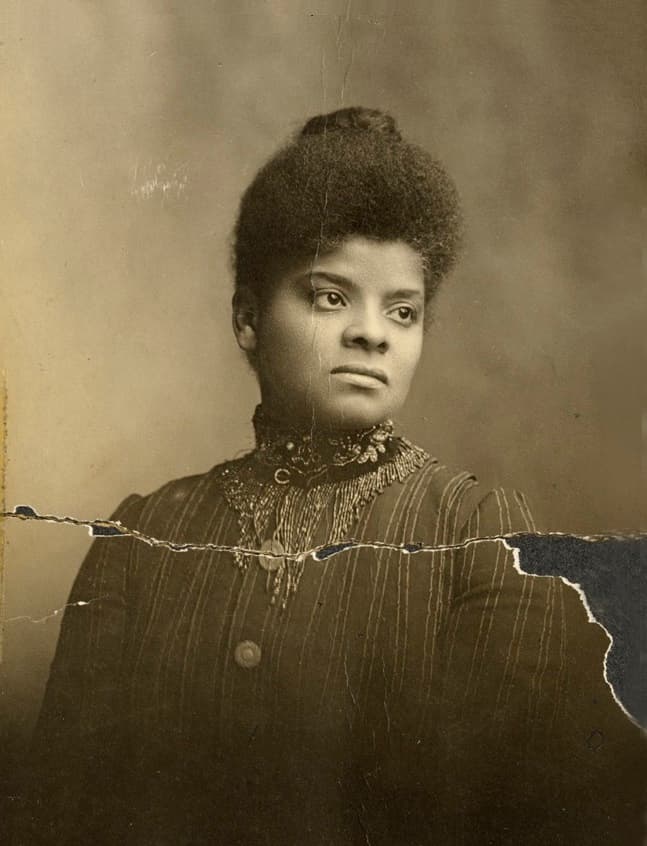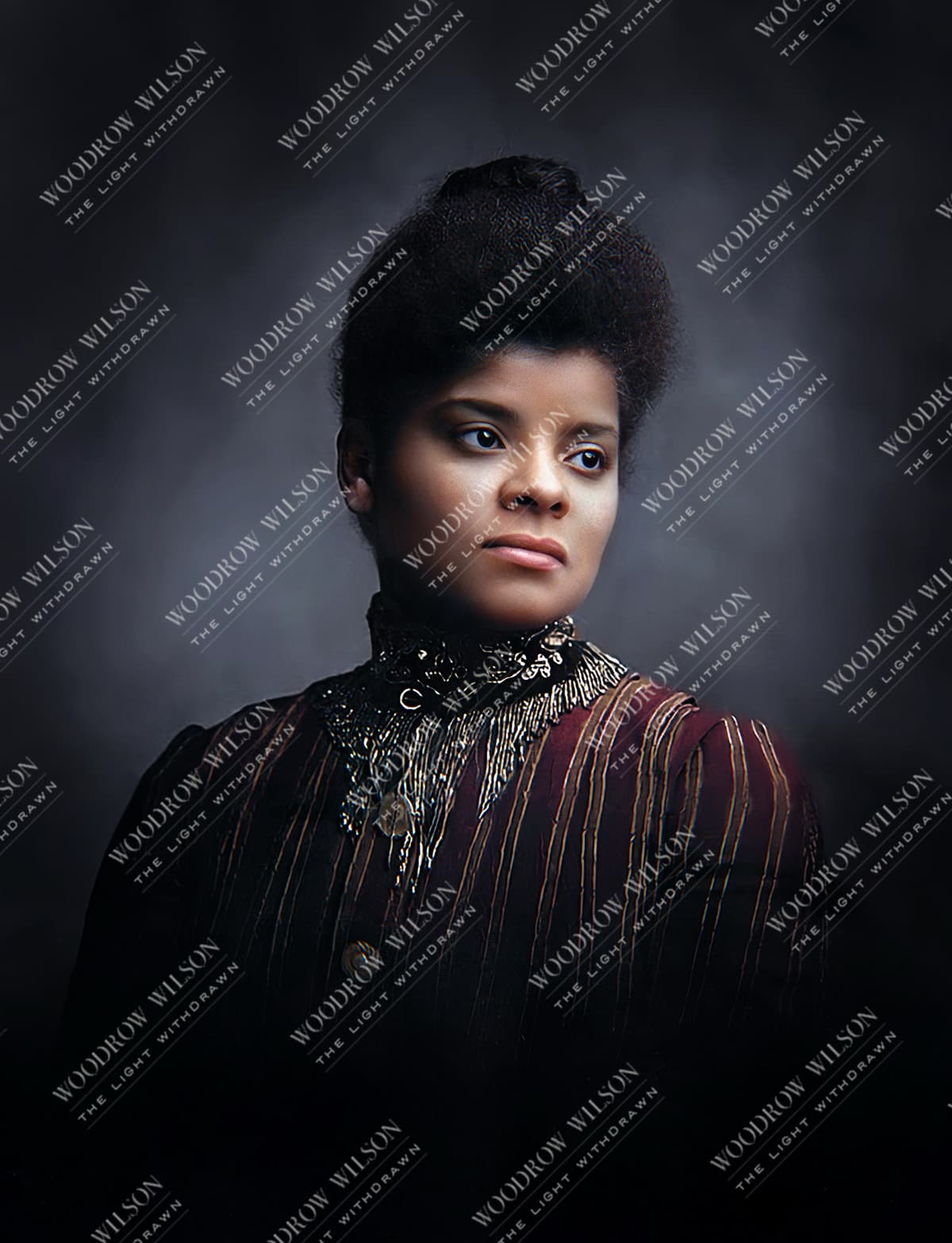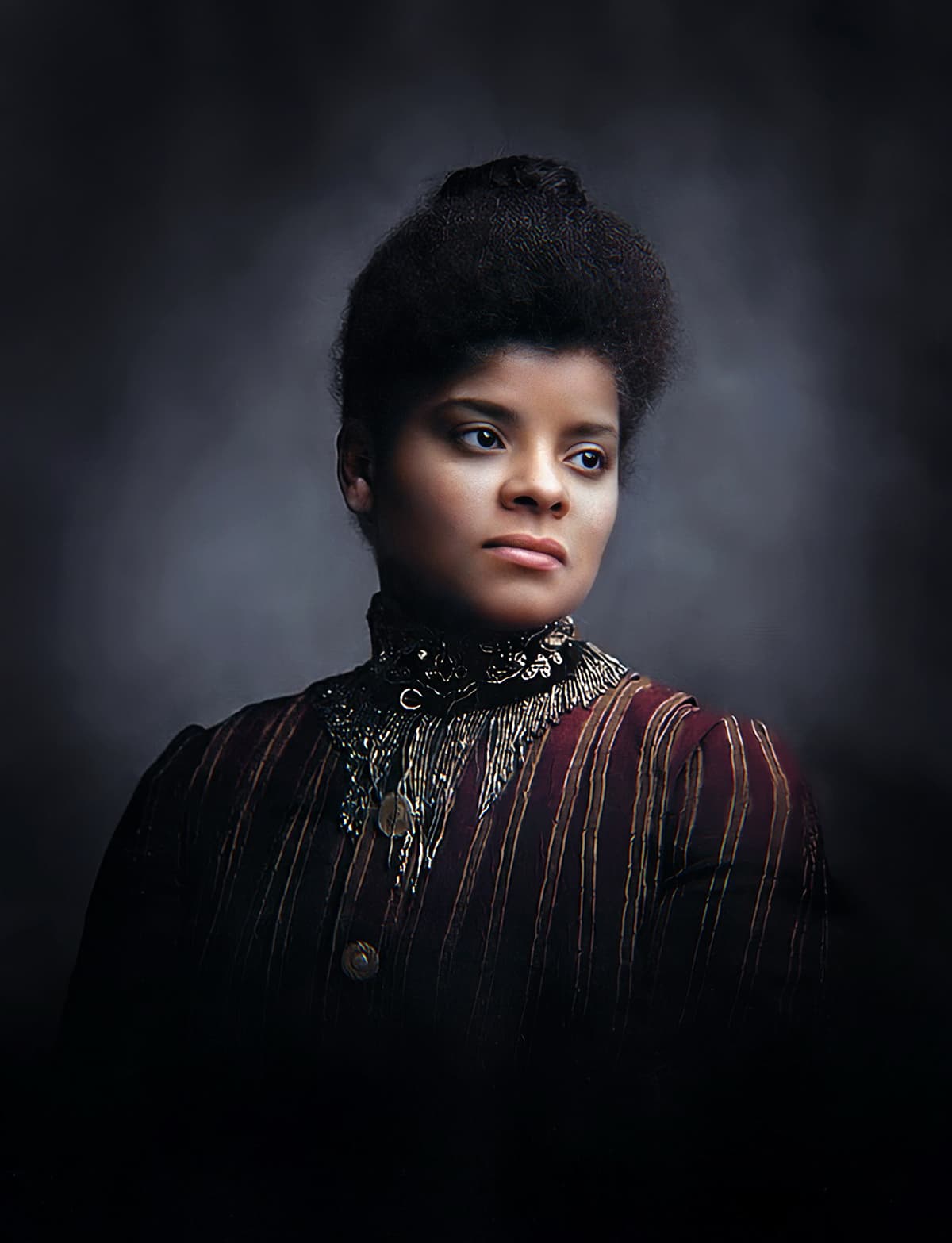Ida B. Wells-Barnett, shown in this 1893 photograph at 31, cofounded both the NAACP and the National Association for Colored Women. A courageous speaker and writer, she received a posthumous Pulitzer Prize in 2020 for her reporting on lynching. As a leader in the Negro Fellowship League, she protested the racist works of Wilson’s friend Thomas Dixon.
She marched in Washington in support of the Anthony Amendment, confronted Wilson in the White House over his segregation policies, and campaigned for Wilson’s Republican opponent in the 1916 presidential election, Charles Evans Hughes.
Source photograph: Cihak and Zima, photographer; University of Chicago Library, Special Collections Research Center, Ida B. Wells Papers.
Date: c. 1893–94
Ida B. Wells-Barnett, shown in this 1893 photograph at 31, cofounded both the NAACP and the National Association for Colored Women. A courageous speaker and writer, she received a posthumous Pulitzer Prize in 2020 for her reporting on lynching. As a leader in the Negro Fellowship League, she protested the racist works of Wilson’s friend Thomas Dixon.
She marched in Washington in support of the Anthony Amendment, confronted Wilson in the White House over his segregation policies, and campaigned for Wilson’s Republican opponent in the 1916 presidential election, Charles Evans Hughes.
Source photograph: Cihak and Zima, photographer; University of Chicago Library, Special Collections Research Center, Ida B. Wells Papers.
Date: c. 1893–94



